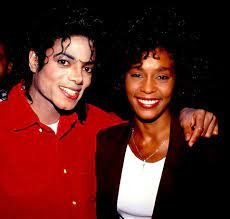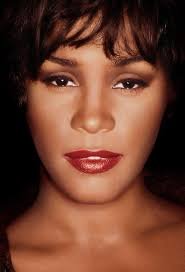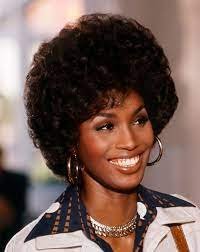Remembering “The Voice”
Exactly twelve years ago, this day, coincidentally, it was also a Sunday like today, I was in my sitting room, watching the news at midnoon, when the newscaster began the entertainment segment of the news. It opened with the report of the demise of Whitney Houston at the Beverly Hills Hilton Hotel in California, the previous night.
I recollect getting goosebumps and yelling a rhetorical question in a shrill voice “ What is going on”, I said “why are they dying so young?”. “They” would refer to Whitney and Michael Jackson, who had passed three years, prior. A myriad of emotions flowed through me. I was shocked, pained, petrified, puzzled all in one fell swoop.
Whitney Houston was the soundtrack of my life. I deeply loved and admired her gift of voice to the world. It was one that was distinctive on the radio. When she opened her mouth, you knew instantaneously who it was, and that she was born to sing. Whitney Houston sang effortlessly!
Her voice soothed, healed and found resonance in my soul. Her voice de-stressed, enthralled, captivated, mesmerized, uplifted, energized and empowered. To the lovers of good, it was awesome, pleasant and inspiring and to the negative entities, it triggered envy and bitterness.
Her voice and essence was strong, powerful and contagious that it aroused one’s innate singing ability, hitherto, unknown. And my experience was unqualified to be classified a singularity, as many young people known and unknown, amongst the Generation Xs and Millenials, and prominent ones like Brandy, Monica, Tevin Campbell, etc, have attested to being inspired by this amazing woman.
Lyrically, she mostly prioritized love and relationships, and some times, she inspired with songs like the cover of George Benson’s “Greatest Love of all”, “One Moment in Time”, “Step by Step”, “I Believe in You and Me”, etc. Just like the glamorous women singers of previous decades like Gladys Knight, Dionne Warwick, Tina Turner, Diana Ross, Phyllis Hyman, Chaka Khan, Patti LaBelle, etc, she trod the path of apoliticality by centering every day issues which lent credence to the normalized passivity of daily existence.
Many black artists in the 1980s had detoured from political messaging in their lyricism due to the systemic repression which marked the Nixon era. A singer like Nina Simone who had been unapologetically audacious in her musical expression of rage towards racism and inequality in the USA, suffered demonization which severely hampered the progression of her career. She would become nomadic, seeking succour outside the US in the Caribbean Island of Barbados, Liberia, Netherlands and France.
By the time Whitney ventured into limelight, the political pendulum and momentum had swung from an inter-racial agitation against racism to an intra-racial one, whereby members of the black community became gatekeepers to checkmate and publicly shame any form of black fraternization with whites.
Simply put, Whitney the church girl, whose musical training began with the gospels had crossed-over to the “pop” genre, sanitized of elements of blackness which was justifiably so, because to be mentored by a Clive Davis meant that blackness had no functionality in the equation. Davis was not a Berry Gordy, period! In any case, Mr Gordy was fleeing blackness by employing every element in the book to ensure the transcendence of the Motown sound beyond racial limitations and expectations.
Long story short, Whitney Houston would be booed at the 1988 and 1989 Soul Train Awards, respectively, by attendees who questioned her authenticity as a black artist. The Reverend Al Sharpton would christen her, Whitney “Whitey” Houston, after all, she had abandoned her musical roots and shamed her ancestors. Clearly, the black community was unable to contend the collective racial oppression which overshadowed them. Instead, they chose the easier route of policing members with close proximity to the oppressor. To them, pop was the sound and signifier of the oppressor class.
Consequently, Whitney whose greatest desire in life was to be liked, acccording to her Step-mother, Cissy Houston in the memoir Remembering Whitney, bowed to the collective pressure of conformity by ensuring that her third album appeased the community. I’m Your Baby, Tonight (1990), when closely read was Whitney retracing her musical steps back home to her roots. The album represented Rhythm & Blues in its finest form and earned a multi-platinum certification.
She was born on August 9 1963, which astrologically made her a Leo. Typically, Leos are strong-willed personality types, audacious, possessing generous hearts, passion, charisma, loyalty, dynamism, and a high sense of confidence. They are regal, elegant and everly conspicuous. Whitney embodied these external traits, but internally, her life often contravened and contradicted the symbolism of her Zodiac sign. The Achilles heel of conformity in her personality was symptomatic, in my opinion, of a childhood trauma.
The world knows about her excessive drug consumption which began right under her parent’s roof, aided and abetted by her brother; and her tortuous marriage to Bobby Brown which exceeded a decade. It is my argument that despite the glamour and glitz; and the glorious and heavenly melodies that she blessed us with, Whitney Elizabeth Houston suffered abandonment issues due to family secrets.
It was neither the sexual molestation by her family member, nor her gravitation towards lesbianism, which was a taboo subject in the 1980s, atleast within the black community. In my view, it was the severance from her biological mother, Teresa Graves , a 1970s TV actress, who purportedly had an affair with John Russell Houston, Jnr, Whitney’s father. A now deleted information on Graves’ page on Wikipedia, about a baby girl she had delivered on August 9, at the minor age of 15, who was immediately adopted by Mr Houston and his wife, Cissy would be the missing link to Whitney Houston’s tragic existence. A critical look at the pictures below reveal a striking resemblance between the two women. And if it were a mere coincidence to be overlooked as some claim, why was the information erased? DNA never lies!
Teresa Graves
Teresa Graves
Whitney
I conjecture that this background information was publicly known and that its erasure was part of an image laundry campaign to mark her introduction to the public. But I find astounding the concerted efforts to shield irreversible occurences which often mar the life progression of children. Was Whitney to blame for having an under-age mother? Was she to blame for having a paedophilic father? The withdrawal of this information would suggest that the world in the 1960s was filled with saintly men, and the one who strayed needed to cover his shame.
In retrospect, I am persuaded to critically observe the collective embrace of shame. We live in a world where we are taught to be perfect in all our dealings. We live in a world where we are governed by stringent rules which often infringe our sense of well-being. We are told that mistakes which reflects a learning process warrant shamefullness and fear as penance. It is no wonder the majority of the population aims to please society at the expense of their happiness. I would submit that even if I had been aware of her background in the 1980s, I would have still remained an ardent admirer, just like I am today.
Many, before her had tainted background stories like Aretha Franklin, who throughout her lifetime never debunked the rumour about an incestuous relationship with her father which produced her first child at age 12. However, many of us loved her music and she was justifiably the “Queen of Soul”. This is based on the understanding that the world exists in a state of chaos and imbalance. The whole world is gutted by pain, trauma and dysfunctionality. Life is not, as it ought to be, and this writer understands. So, when a vice is publicly displayed by a man or woman, we must ask why, perhaps, this would stimulate some empathy in our manner and response to such situations.
Again, I here submit that my love and respect for Whitney remains unwavered.
Today, we hear about the sacrifices made to gain fame and fortune in Hollywood. In the aftermath of Cassie Ventura’s law-suit against Sean Combs, the participation in sinister and devilish acts of sodomy and sex rituals or “selling one’s soul to the devil”, have become more than just hearsay. It has been observed that artists who desist from participation are often blacklisted and rendered invisible and unheard. As regards Whitney, I have often wondered what price she had to pay for her astounding fame. What rituals did she perform? Who did she sacrifice? I guess, we would never know!
However, the deterioration in her physical integrity in the early 2000s indicated a struggle with internal demons. Moments like the interview with Barbra Walters and her singing appearance at Michael Jackson’s 30th Anniversary as an entertainer, sent tongues wagging. While her marriage was approaching the endpoint and the drugs took a significant toll on her physicality, she was struggling to liberate herself from the claws of Clive Davis. Like Michael Jackson and Prince, she had finally come to the realization that she was just another glamourized slave. The chief commodity of Arista Records and cash cow of the Houston family was in a battle to self-preserve. But, how long could she hold on?
Like the Lioness that she was, she bounced back with Just Whitney (2002). Clive Davis had been sacked from Arista Records. With the song “Try it on my own”, yours sincerely believed that she had finally found her rhythm , ridden herself of self-sabotaging vices and would be around for a very long time. As events show, her state would worsen in subsequent years. The Voice would lose her voice and fall off her elevated position in the collective consciousness. But, she struggled to hold on, sometimes with an unimaginable strength and resilience. Nonetheless, like they say in the music industry, “You are worth more, dead than alive”. Speculations are rife that she was prematurely cut off, but time would most definitely reveal the truth.
Meanwhile, like the commodity that she was, endless merchandises ranging from films, books, posthumous CDs and MAC Lipstick have been promoted capitalizing on her name for profit. This avarice shows that Whitney Houston was alone without a support system to love and encourage her in times of tribulation. She gave and hardly received. She strove to be liked, but no one liked her in return. She was only as good as the money she could yield.
Whitney’s life is a cautionary tale plagued with tragedy, abuse and severe pain. And I have come to the firm conclusion which many before me have reached, and many more after now would do same, and it is that the fame and fortune that many pursue today, is insignificant and worthless in the long run. It is lonely at the top like Asake would sing, and authentic friends and well-wishers are often not the ones who hang around you. Many may profess love and devotion, but a money machine is all they see, not a human being with feelings requiring love, empathy and compassion. So, while I enjoy my life in tranquility and obscurity, I pledge to always love Whitney Elizabeth Houston, and I shall never spend a dime on any merchandize, knowing full well, that she is no longer here to reap the benefit.








